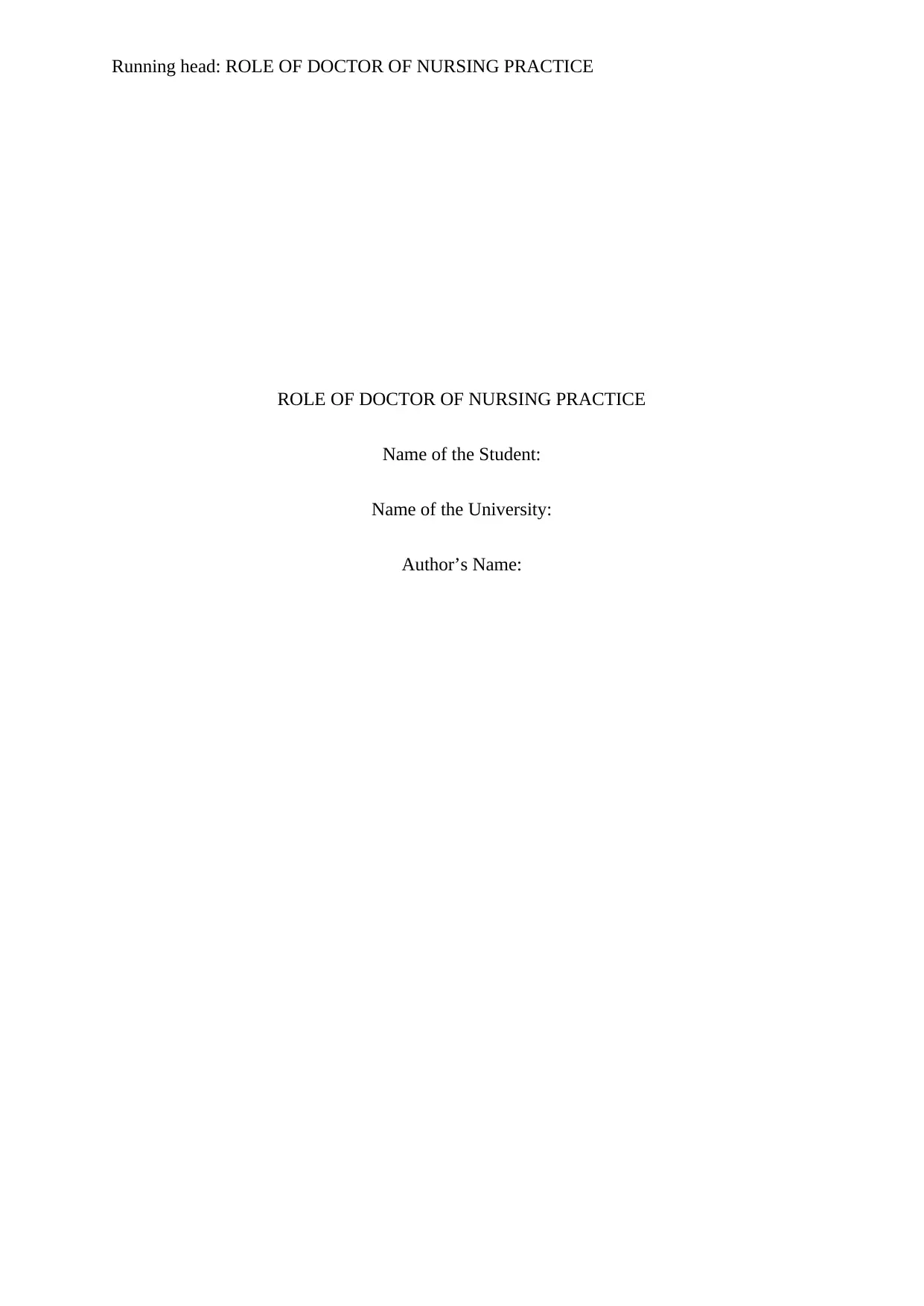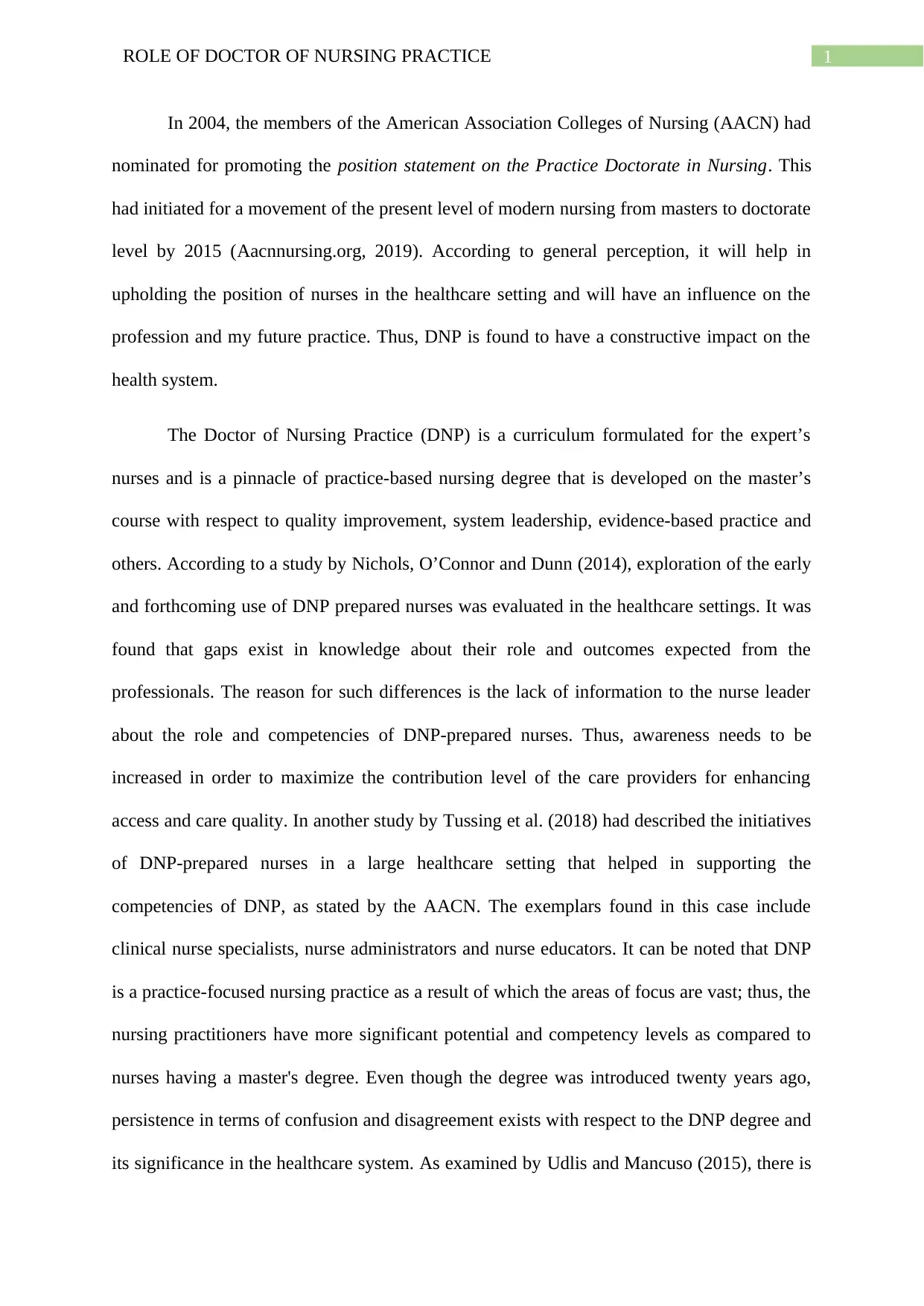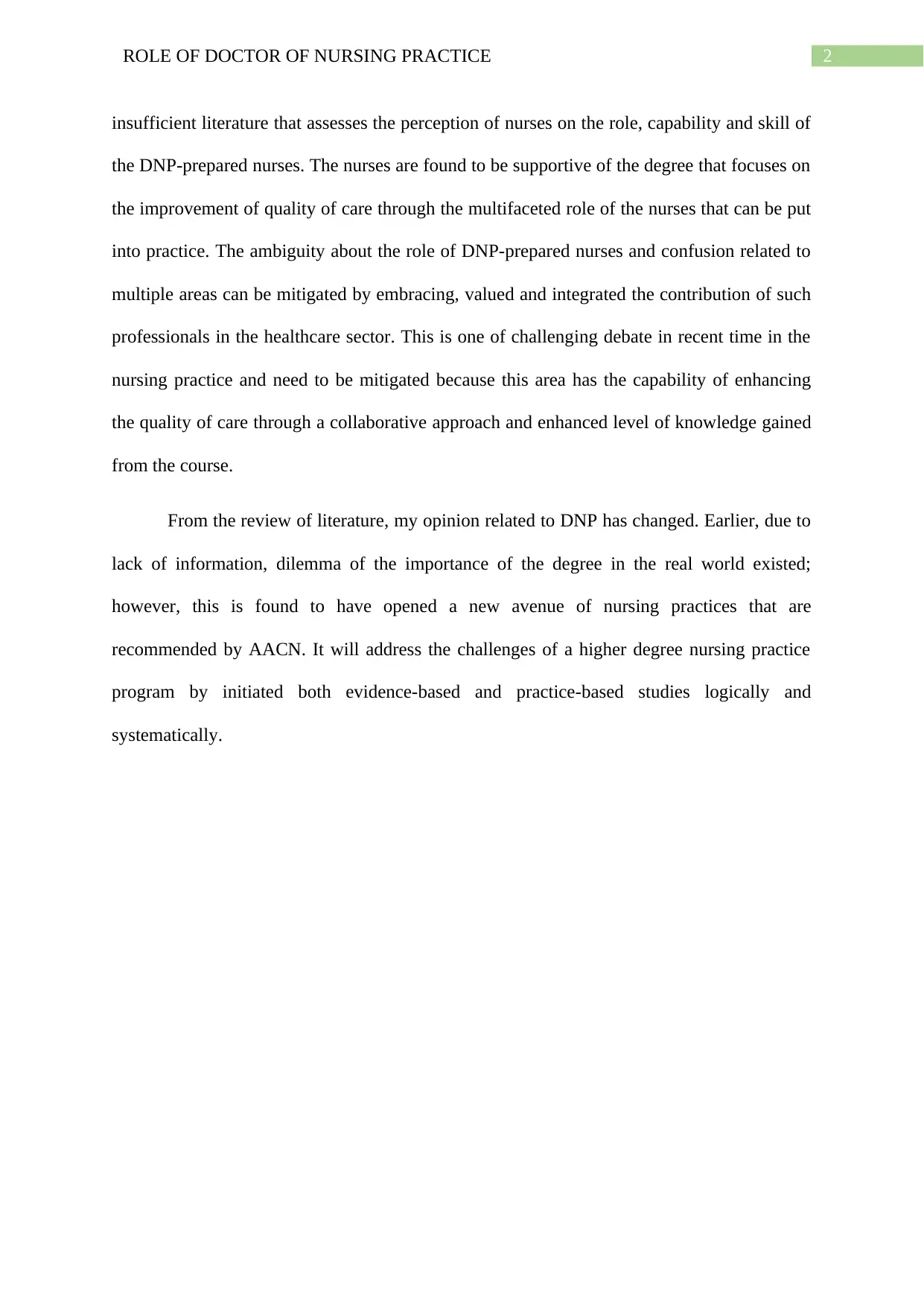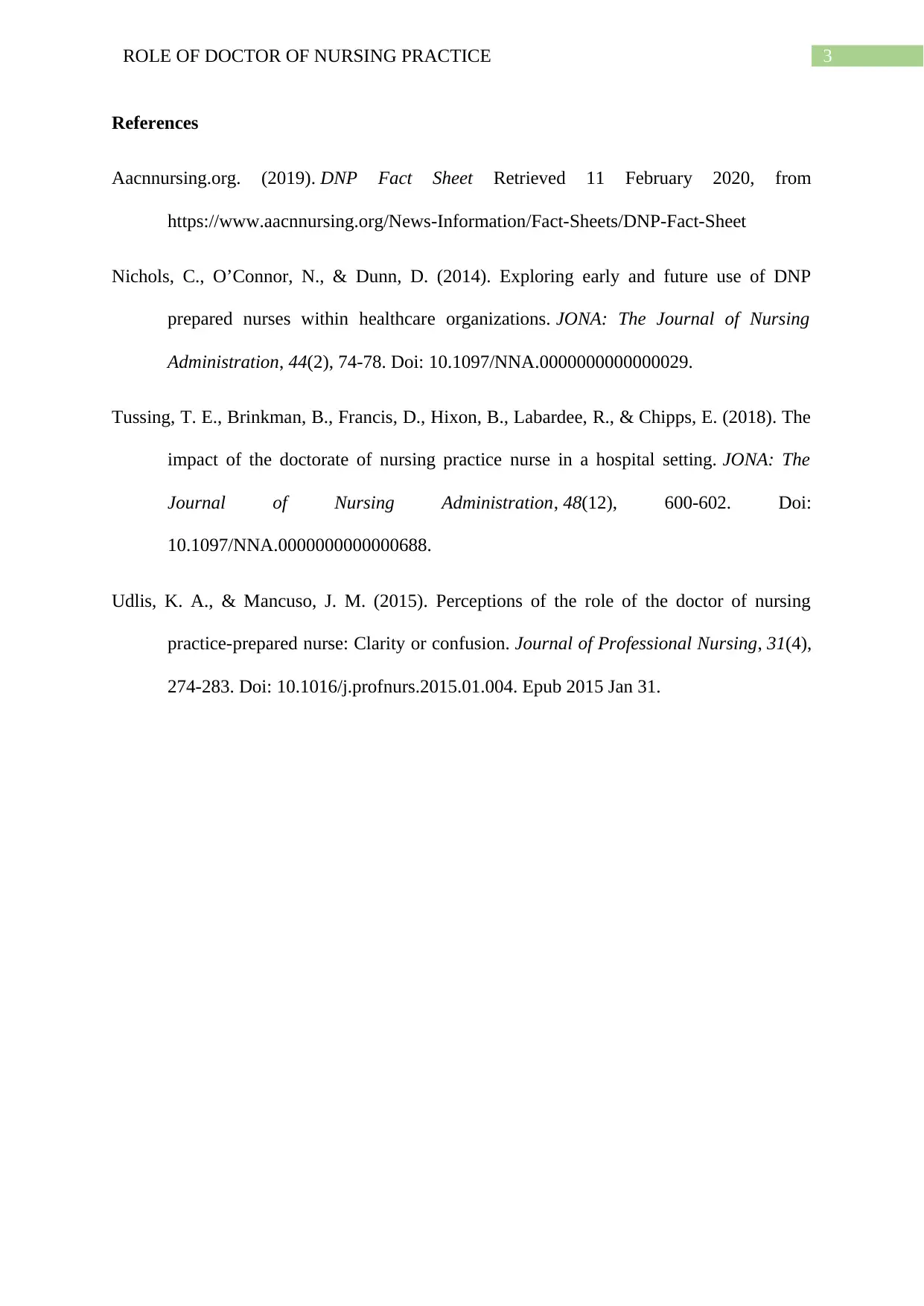The Role of the Doctor of Nursing Practice in Healthcare
VerifiedAdded on 2022/08/13
|4
|828
|20
Report
AI Summary
This report examines the evolving role of the Doctor of Nursing Practice (DNP) within the healthcare landscape. The report begins by referencing the American Association of Colleges of Nursing (AACN) and its advocacy for DNP programs. It then explores studies by Nichols, O’Connor, and Dunn (2014), and Tussing et al. (2018), which highlight the competencies and contributions of DNP-prepared nurses, emphasizing their roles in quality improvement, system leadership, and evidence-based practice. The report also addresses the existing ambiguity and debate surrounding the DNP degree, citing Udlis and Mancuso (2015) to underscore the need for clarity and integration of DNP-prepared nurses. The author reflects on their own changing perspective, acknowledging the degree's potential to address challenges in higher-degree nursing practice and promote evidence-based practice.
1 out of 4











![[object Object]](/_next/static/media/star-bottom.7253800d.svg)